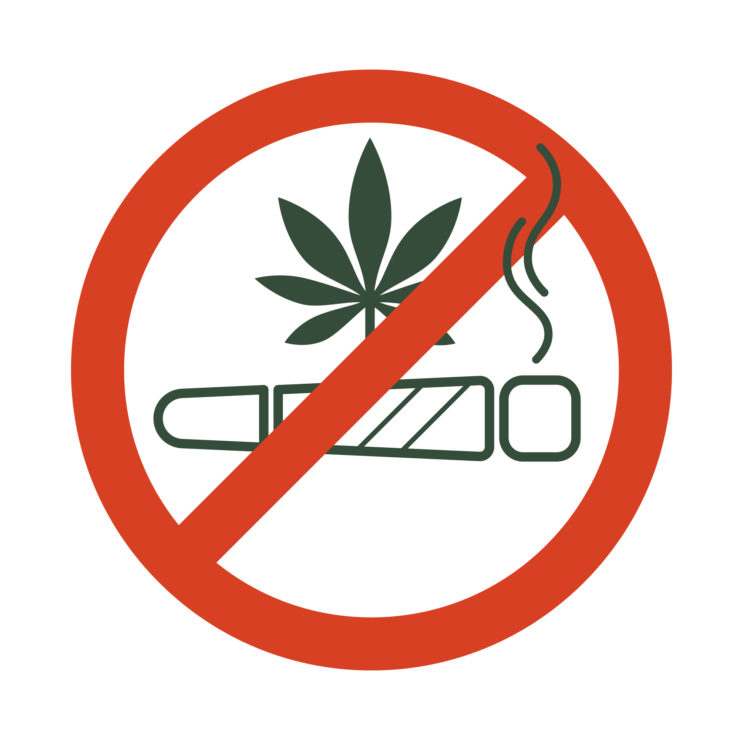
06 Aug No Smoking: Some States Try to Snuff Out Smokable Hemp Products

Last month, South Carolina’s Attorney General Alan Wilson’s office issued a letter to the Chief of the state’s Law Enforcement Division. The letter responded to a number of questions raised by the Chief regarding hemp. South Carolina, like many other states, regulates the cultivation, handling, and processing of hemp. It distinguishes between raw hemp and “hemp products.” Hemp products in South Carolina are defined as:
All products with the federally defined THC level for hemp derived from, or made by processing hemp plants or hemp plant parts, that are prepared in a form available for commercial sale, including, but not limited to, cosmetics, personal care products, food intended for animal or human consumption, cloth, cordage, fiber, fuel paint, paper, particleboard, plastics, and any product containing one or more hemp-derived cannabinoids, such as cannabidiol. Unprocessed or raw plant material, including nonsterilized hemp seeds is not considered a hemp product.
One question presented by the Chief was whether “merely placing raw plant material in a package constitute processing hemp into a hemp product?” The South Carolina Attorney General determined that it did not and deferred to law enforcement as to whether a given product is unprocessed, raw hemp which can only be possessed with a license from the South Carolina Department of Agriculture, or a processed hemp product.
According to a recent report by Greenville News, police in South Carolina are seizing smokable hemp products in South Carolina. On July 13, Anderson County deputies seized 2 pounds of hemp from Top Hat Tobacco. No one was charged but the police report indicated that deputies were investigating the illegal sale of marijuana. Anderson County deputies performed a similar seizure at a convenience store on July 12.
Greenville News contacted Robert Kittle, a spokesman for the South Carolina Attorney General, who stated that “nothing in our opinion addresses CBD Hemp Flower specifically, so whether [its sale] is illegal without a license is a question of fact that would have to be determined by law enforcement.” A spokeswoman for the South Carolina Law Enforcement division, when asked whether her agency was confiscating smokable hemp in the state said, “we feel the opinion speaks for itself.” However, the Greenville County Sheriff’s Office said that it was not seizing hemp flower from stores.
South Carolina may not have explicitly banned the sale of smokable hemp, but the sale of any smokable hemp in South Carolina comes with some risk. According to the Greenville News, the smokable hemp sold at Top Hat “is typically heated, cured, and dried by licensed processors before it’s sold to stores.” Arguably, the sale of those products were not the unlicensed sale of raw hemp but rather the sale of hemp products. The situation in South Carolina is murky at the moment.
Other states have grappled with whether to allow any smokable hemp products. Here is a non-exhaustive list of some states that address the issue of smokable hemp:
- In June 2019, Louisiana’s Governor signed House Bill 491 into law which states that “[n]o person shall process or sell [a]ny part of hemp for inhalation.”
- Kentucky’s hemp regulations prohibit the sale of hemp cigarettes; hemp cigars; chew, dip or other smokeless material consisting of hemp floral material; and hemp leaf material or floral material teas.
- North Carolina’s legislature has been debating whether or not to criminalize smokable hemp in Senate Bill 315, which has yet to make it to the Governor’s desk.
- In Indiana, a group of retailers who sell CBD products filed a lawsuit in the Southern District of Indiana to declare Indiana’s law making it illegal to manufacture, finance, deliver, or possess “smokable hemp” under state law.
The mismatch of laws, regulations, and policies on smokable hemp make it difficult for businesses to sell smokable hemp products across state lines. If you operate in this space, you must keep track of each state’s position on smokable hemp. Failure to do so could result in the seizure of products and even criminal charges.


Sorry, the comment form is closed at this time.